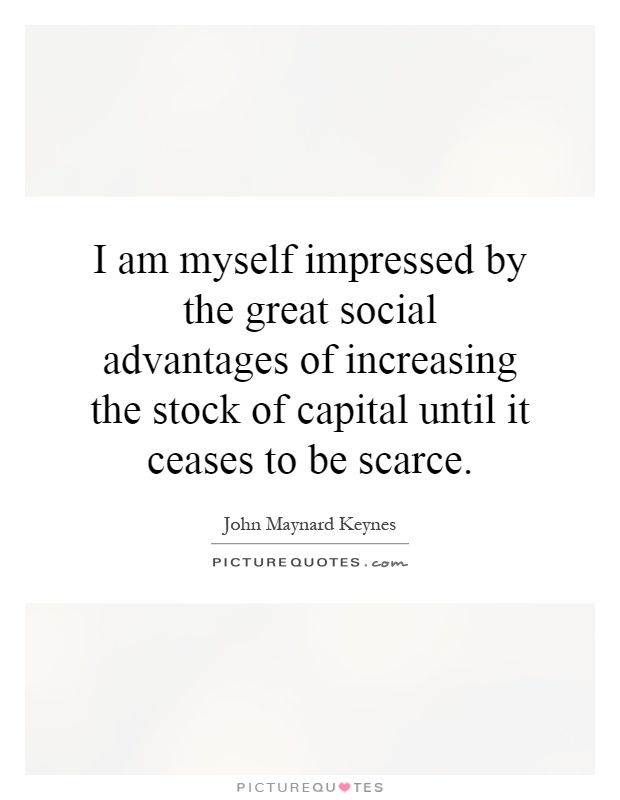I am myself impressed by the great social advantages of increasing the stock of capital until it ceases to be scarce

I am myself impressed by the great social advantages of increasing the stock of capital until it ceases to be scarce
John Maynard Keynes, one of the most influential economists of the 20th century, believed in the power of increasing the stock of capital to improve social welfare and economic prosperity. In his seminal work, "The General Theory of Employment, Interest, and Money," Keynes argued that increasing the stock of capital until it ceases to be scarce can have great social advantages.Keynes believed that a lack of capital was a major impediment to economic growth and development. He argued that increasing the stock of capital through investment in infrastructure, technology, and education could lead to higher productivity, increased output, and ultimately, higher living standards for all members of society. Keynes believed that by increasing the stock of capital, societies could create more jobs, increase wages, and reduce poverty.
Keynes also believed that increasing the stock of capital could help to stabilize the economy and prevent economic crises. He argued that by investing in capital goods, societies could create a more stable and resilient economy that was less prone to booms and busts. Keynes believed that by increasing the stock of capital, societies could create a more balanced economy that was less reliant on consumer spending and more focused on long-term investment.
Furthermore, Keynes believed that increasing the stock of capital could lead to greater social equality. He argued that by investing in capital goods, societies could create more opportunities for all members of society to participate in the economy and share in its benefits. Keynes believed that by increasing the stock of capital, societies could create a more inclusive economy that provided opportunities for all members of society to thrive.












 Friendship Quotes
Friendship Quotes Love Quotes
Love Quotes Life Quotes
Life Quotes Funny Quotes
Funny Quotes Motivational Quotes
Motivational Quotes Inspirational Quotes
Inspirational Quotes